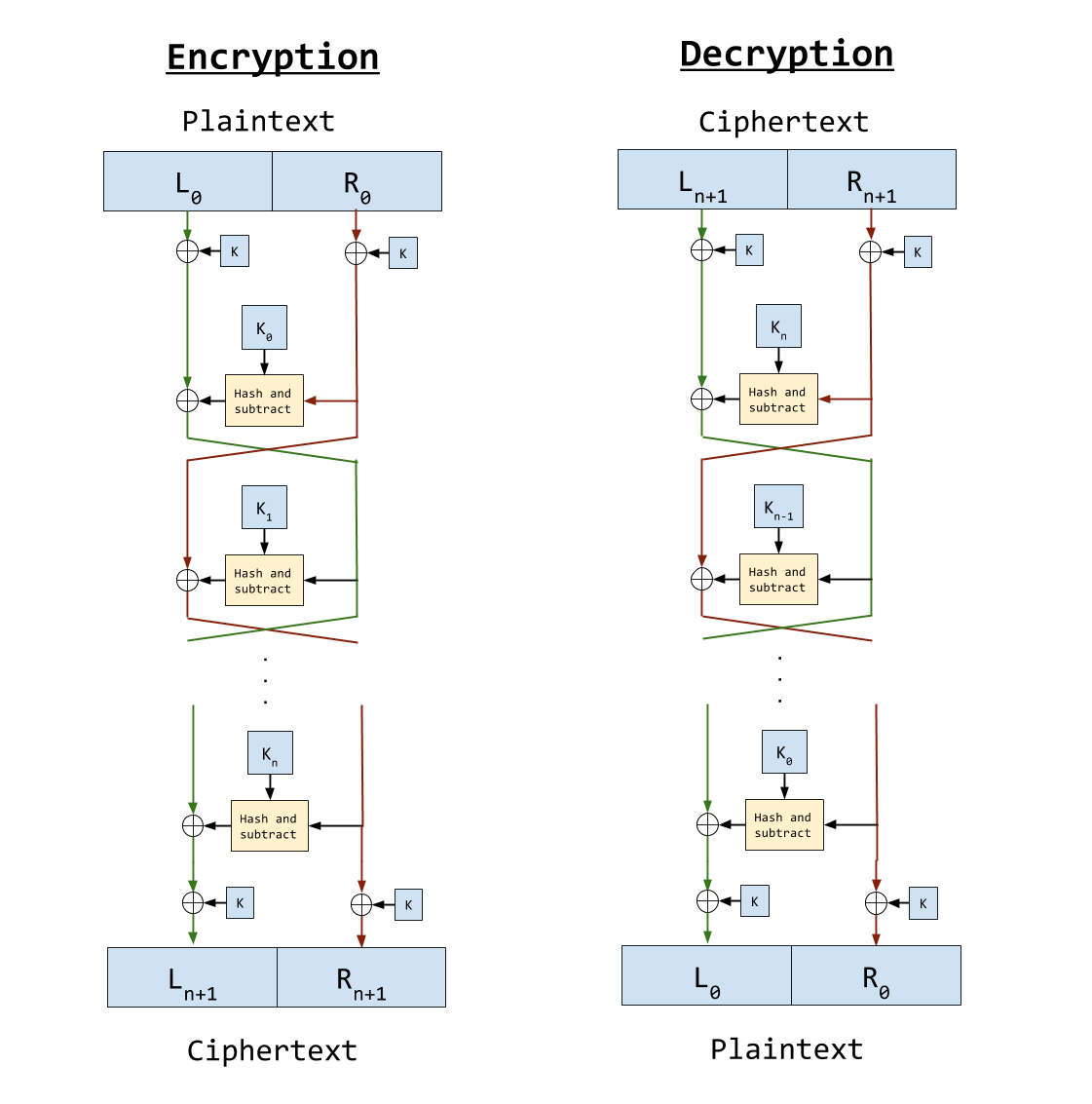A Feistel cipher that uses md5 for nonlinearity. Also uses key whitening. Takes arbitrarily sized key and input file. Can also take directories as input.
usage: bagel.py [-h] [-d] [-v] [-c CYCLES] [-w WINDOW_SIZE] [-o OUTPUT_FILE]
[-k KEY_FILE] [-s KEY_STRING] [-n KEY_SIZE] [-r]
input_file
optional arguments:
-h, --help show this help message and exit
General Options:
-d, --decrypt Decrypt an encrypted file
-v, --verbose Print more about what's going on
-c CYCLES, --cycles CYCLES
Number of cycles to run
-w WINDOW_SIZE, --window WINDOW_SIZE
Print more about what's going on
I/O Options:
input_file
-o OUTPUT_FILE, --output OUTPUT_FILE
File to output to. If left blank, save as
inputfile.enc
-k KEY_FILE, --key KEY_FILE
Key file. If left blank, will generate a key and save
it as inputfile.key
-s KEY_STRING, --string_key KEY_STRING
Key string, can be used instead of key file.
-n KEY_SIZE, --keysize KEY_SIZE
size of the key to generate
-r, --directory Encrypt directory
to encrypt:
./python bagel.py myfile.txt
--> crypt.txt.enc
--> crypt.txt.key (if one isn't provided)
to decrypt:
./python bagel.py crypt.txt -d -k crypt.txt.key
--> crypt.txt
This also works on directories. (use the -r flag, it just zips/unzips them).
 (note: flowchart based largely on the one on the wikipedia page for Feistel ciphers)
(note: flowchart based largely on the one on the wikipedia page for Feistel ciphers)